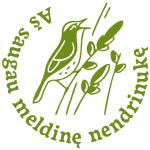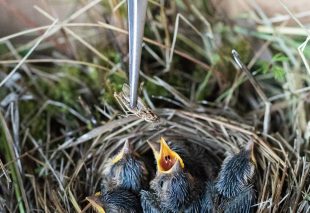

Čia galite rasti visų pranešėjų pristatymus bei renginio ataskaitą. Dokumentai – anglų kalba.
Pristatymai, anglų k.:
Session I: Latest developments and scientific research on ecology and conservation of Aquatic Warbler
Martin Flade. Overview on the Aquatic Warbler global population dynamics, occurring challenges and successes for its conservation
Žydrūnas Preikša & Žymantas Morkvėnas. Aquatic Warbler peripheral populations dynamics and its possible reasons in Lithuania
Zsolt Vegvari. Possible causes of population decline of the Aquatic Warbler in Hungary
Anatolii Poluda. Aquatic Warbler core population dynamics and its possible reasons in Ukraine
Franziska Tanneberger & Jochen Bellebaum. Aquatic Warbler peripheral populations dynamics and its possible reasons – Pomerania
Colonel Ibrahima Diop & Cosima Tegetmeyer. Aquatic Warbler in wintering sites (Senegal)
Volker Salewski, Anja Ritz, Julio Canales-Delgadillo, Martin Flade, Michael Wink & Judith Korb. Latest preliminary insights into Aquatic Warbler population genetics
Justyna Kubacka. Aquatic Warbler breeding productivity and its response to mowing – results of research in Poland, conclusions for conservation
Jochen Bellebaum & Vera Knöfler. Outcomes of the Aquatic Warbler breeding success study 2011 in Lithuania
Andrey Mukhin. Dispersal in highly fragmented habitats – Reed Warbler case
Alexander Kozulin, Leonid Sokolov & Lubov Vergeichik. Recovery of breeding population of Aquatic Warbler in Žuvintas Biosphere Reserve (development and testing of young birds’ relocation method)
Norbert Schaffer. Review on reintroductions of passerines/trans-sahara migrants: existing experiences and lessons learned
Session II: Conservation of the Aquatic Warbler: scientific perspective and practical experiences
Wiktor Kotowski, Ewa Jablonska & Helena Bartoszuk. Snow grooming vehicles as wetland mowers: what side effects do they have on plant diversity? Report from the Biebrza National Park (Poland)
Žymantas Morkvėnas. Experience and lessons learned from Aquatic Warbler habitat management in Lithuania: stakeholder involvement and communication aspects, technological solution for mowing fen mires
Alexander Kozulin &Uladzimir Malashevich. The strategy of Aquatic Warbler conservation under conditions of habitat degradation and fragmentation in Belarus
Aliaksandr Volchak, Aleh Meshyk, Mikalai Sheshka & Uladzimir Malashevich. Hydrological modelling – a conservation tool for the world’s biggest Aquatic Warbler breeding site, Zvaniec mire
Poster session
Project “Baltic Aquatic Warbler” (LIFE09 NAT/LT/000233)
Arūnas Balsevičius & Ričardas Narijauskas. Changes of tall sedge communities in Šyša polder (2011–2013)
Cosima Tegetmeyer & Nina Seifert. Aquatic Warbler population size and habitat suitability in the Djoudj area (Senegal)
Raphaël Musseau, Valentine Herrmann, Sophie Bénard, Christian Kerbiriou, Thomas Herault, Estelle Kerbiriou & Frédéric Jiguet. Migration stopover strategy of the Aquatic Warbler Acrocephalus paludicola at Gironde estuary and consequences for estuarine wetland habitats management
Júlio M. Neto. Migration of Aquatic Warblers in Portugal
Nerijus Zableckis. Impact of combined grazing and mowing on flooded meadows of Nemunas Delta
Oskars Keišs & Jānis Reichmanis. Status and conservation of the Aquatic Warbler in Latvia
Rguibi Idrissi Hamid, Provost Pascal, Malki Meryem & Jiguet Fréderic. Autumn migration for the globally threatened Aquatic Warbler Acrocephalus paludicola in Morocco: First ringing data
Session III: Rural development plan as a tool to secure Aquatic Warbler conservation: current experience, successes and challenges
Jochen Bellebaum, Holger Pfeffer & Hermann Hötker. Advances and challenges of current agri-environmental measures for meadowbird conservation
Session IV: Seeking for self-sustaining farming systems to ensure long-term perspective of Aquatic Warbler conservation
Wendelin Wichtmann & Franziska Tanneberger. Self-sustaining farming mechanisms in wet fen mires
Valdas Balčiūnas. Economic aspects of farming in Aquatic Warbler habitats in Lithuania: a real economic-sound farming experience or providing a service in delivery of public good










Komentarų nėra